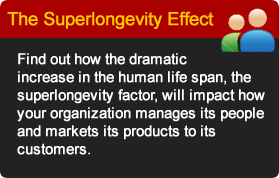Oil Spill, Cleanup, Drilling Moratorium Hurting Obama, Democrats in Polls
Oil Spill, Cleanup, Drilling Moratorium Hurting Obama, Democrats in Polls
June 26, 20104:08 PM MST
Rarely do technological mishaps, no matter how severe, dramatically undermine Americans’ confidence in their political leaders. Even the 1986 Challenger and the 2003 Columbia space shuttle disasters did not drastically harm the approval ratings of the Presidents in office at the time, Reagan and Bush.
However, recent polls indicate that President Obama’s slowness in reacting to the Gulf oil
spill and his eventual handling of the spill’s cleanup have eroded his standing in the eyes of the American people and could negatively affect the Democratic Party’s political prospects in the upcoming Congressional elections.
A just published WSJ/NBC poll shows how much the spill has hurt his approval ratings and eroded Americans’ trust in his leadership. For the first time since the NBC/WSJ poll has been tracking the President’s approval rating, more people disapprove of Obama’s job performance than approve--45% approve, 48% disapprove. Worse, 60 percent of those polled believe the US is on the wrong track, the highest level since he took office.
Over the course of 2010 a number of factors—the growing national debt, a 10% unemployment rate, fears of higher taxes, and seemingly interminable wars in Afghanistan and Iraq —have been eroding Obama’s standing with the American people.
The two-month-old Gulf oil debacle has further weakened Americans’ faith in Obama’s leadership skills. In April 2009, 54 percent of those surveyed gave the president high marks for his ability to handle a crisis. Now, only 40 percent do. The percentage of people who see Obama as “decisive” has shrunk from 57 percent in July 2009 to only 44 percent today. Not surprisingly, while 61 percent of respondents perceived the President as being a strong leader in July 2009, now only 49 percent hold that view.
Recent Rasmussen polls of likely voters bear even worse tidings for the Obama administration. In a poll released June 19th, shortly after Obama’s Oval Office speech, 41% of those interviewed approved of Obama’s performance as President, 58% disapproved. This 17% gap has closed somewhat over the last week, to about 7-10%.
It is not surprising that Obama's speech dealing with the Gulf spill did nothing to halt his decline in the polls. Critics found his address to the nation uninspired and short on specific solutions to the Gulf crisis.
Worse, only 32 million people even bothered to tune in to this well-advertised policy speech, sharply down from the 49 million who watched his January State of the Union address.
As Peggy Noonansaid, the American public was “voting with its clickers.” It seems that people are simply tuning Obama out.
Obama has tried to show the public that he has a handle on the Gulf situation. He has made four visits to the Gulf, given an Oval Office address on the issue, and scared BP into turning over $20 billion to help pay for the spill’s environmental and economic damage.
In spite of this public relations blitz, 50 percent of those surveyed disapprove of Obama’s handling of the spill, with only 42 percent approving. Gallup, in a separate survey, found that the public blames Obama more than they do BP for the post-spill cleanup mess.
The reasons for their disapproval go beyond his handling of the immediate crisis. As discussed in my earlier articles, the public opposes Obama’s “solution” to the crisis, a six-month moratorium on U.S. offshore drilling. Americans know that our economy runs on oil, and fear that the President’s drilling moratorium could increase the nation’s dependence on foreign oil. The public perceives Obama’s temporary drilling halt of as a panic move that could have a far- reaching negative impact on the economy of the Gulf region and the nation as a whole.
Democrats running in November are right to worry that Obama’s sinking poll numbers will impact their chances for re-election. For the second straight month the WSJ/NBC polls showed that 45 percent of Americans want a GOP-controlled Congress after this year’s elections, while only 43 percent want a Democratic-controlled Congress.
As Democratic pollster Peter Hart stated, “The Republican Party has a major advantage in the fall, and this poll just reconfirms that.”
DR. ZEY'S PRESENTATION TOPICS



